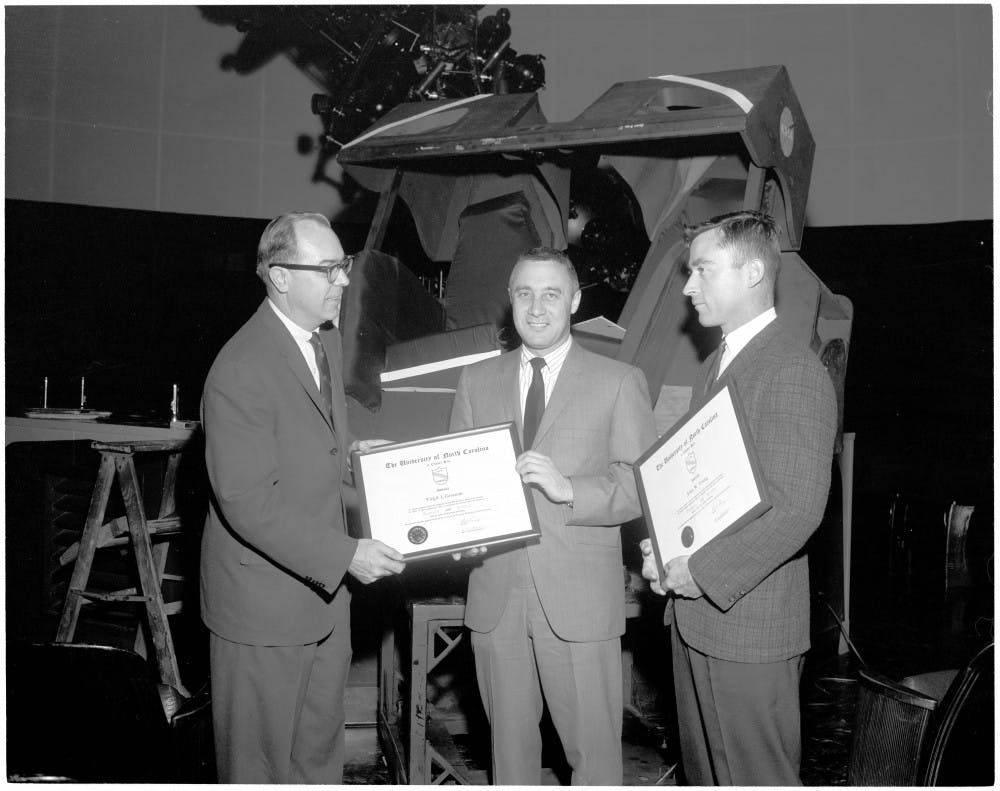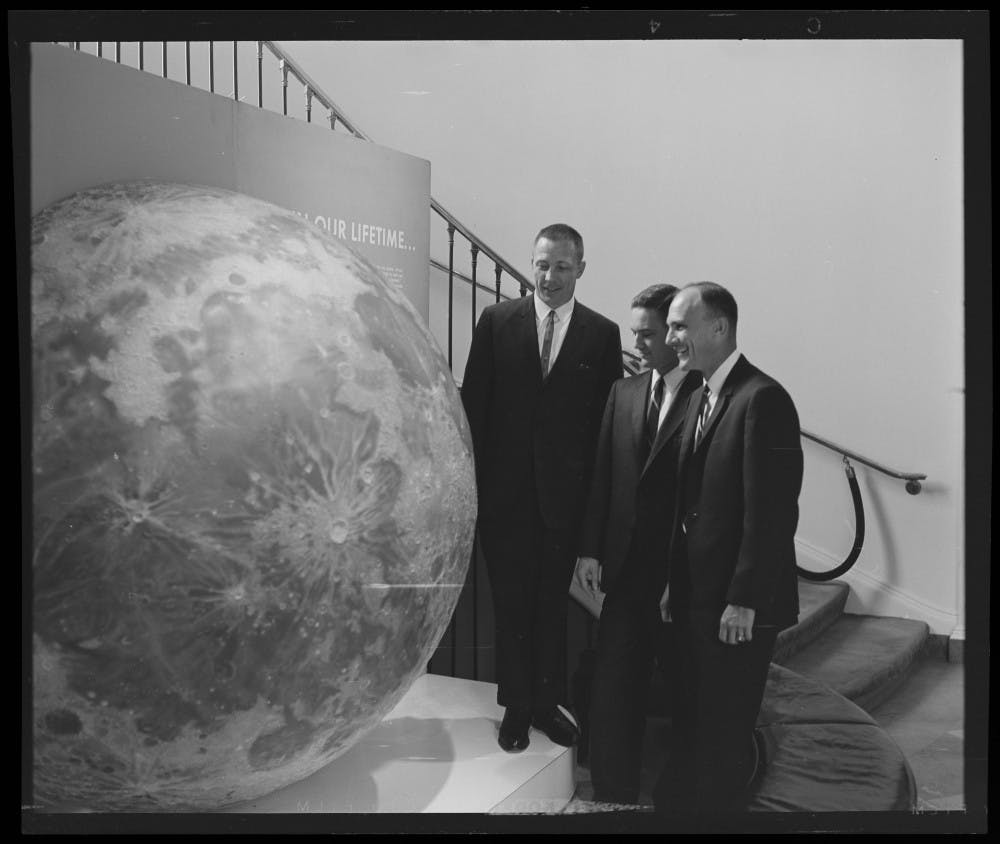July 20, 2019 marks the 50th anniversary of the Apollo 11 mission moon walk, in which Neil Armstrong and Buzz Aldrin became the first ever people to step foot on the moon. While NASA will be celebrating this historic trip, so will the Morehead Planetarium — for being the training ground in celestial navigation for the Apollo 11 team.
Morehead Planetarium, located on UNC's McCorkle Place, was once a destination for astronauts preparing for missions. Over a span of 15 years from 1960 to 1975, 62 American astronauts were trained at the Morehead Planetarium, including the three members of the Apollo 11 mission: Neil Armstrong, Michael Collins and Edwin E. Aldrin Jr.
Morehead educators trained almost every astronaut that participated in the Mercury, Gemini, Apollo and Skylab programs in celestial navigation, which is the location mapping of a space capsule by the positioning of the sun, moon, stars and planets.
Michael Nease, a Morehead Planetarium educator, described the process of celestial navigation education at the Planetarium.
“Astronauts would come into the dome, and the stars would be turned all the way up,” Nease said. “They would be drilled on all the different stars that would be visible through their capsule window at different key moments in their mission to make sure their spacecrafts were aligned.”
According to Nease, Armstrong received the most training of any astronauts who visited Morehead. He racked up at least 120 hours in 12 or 13 visits.
The Morehead Planetarium was introduced to campus in 1949, made possible by a gift from John Motley Morehead III, class of 1891. The Planetarium was in operation long before humans ever went into space, teaching the Chapel Hill community about the night sky. Since then the Planetarium, one of the oldest and largest in the country, welcomes more than half a million visitors each year.
UNC has been paving the way for space exploration for decades with the rich past of the Morehead Planetarium, and today it still remains on the cutting edge.




